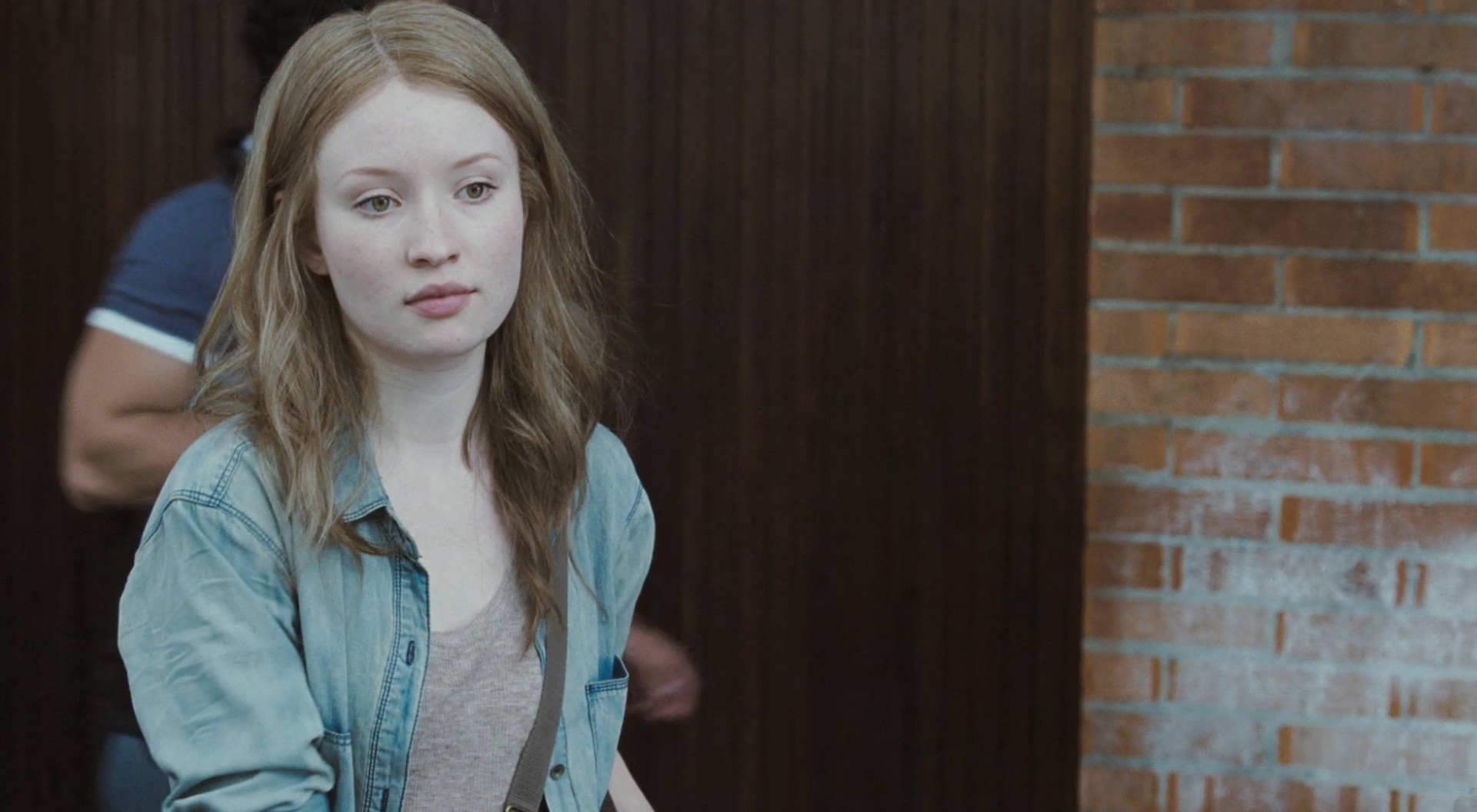
Sleeping Beauty (2011), written and directed by Julia Leigh in her directorial debut, is a haunting, minimalist exploration of control, consent, and the commodification of the female body. It stars Emily Browning as Lucy, a quiet, enigmatic university student who drifts between low-paying jobs and increasingly disturbing encounters in an attempt to support herself.
When Lucy is recruited into a high-class, mysterious sex work operation, she agrees to a peculiar arrangement: she is sedated into a deep sleep and left naked and unconscious in a luxurious bed, where older male clients can do whatever they wish to her body—except penetrate her. She is unaware of what happens while asleep, and yet she continues, seemingly dissociating from the emotional implications of her choices.
Sleeping Beauty (2011), written and directed by Julia Leigh in her directorial debut, is a haunting, minimalist exploration of control, consent, and the commodification of the female body. It stars Emily Browning as Lucy, a quiet, enigmatic university student who drifts between low-paying jobs and increasingly disturbing encounters in an attempt to support herself.
When Lucy is recruited into a high-class, mysterious sex work operation, she agrees to a peculiar arrangement: she is sedated into a deep sleep and left naked and unconscious in a luxurious bed, where older male clients can do whatever they wish to her body—except penetrate her. She is unaware of what happens while asleep, and yet she continues, seemingly dissociating from the emotional implications of her choices.
Emily Browning delivers a deliberately passive, emotionally opaque performance that mirrors the film’s clinical tone. Her Lucy is both a subject and object—a character that challenges traditional cinematic portrayals of sex work, desire, and female agency. Rather than sensuality, the film deals in silence, ritual, and detachment. It resists titillation, presenting its themes with a cold, aesthetic detachment reminiscent of Kubrick or Haneke.
Julia Leigh's direction is stark and composed, using wide, static shots and precise framing to evoke discomfort and a sense of voyeurism. The camera never flinches, but it also never indulges. The film refuses exposition, leaving viewers to interpret Lucy’s psychology and motivations on their own terms. Is she numb from grief? Rebellious? Self-destructive? The ambiguity is the point.
Sleeping Beauty drew polarized reactions. Some called it exploitative; others praised it as a feminist subversion of erotic cinema. Regardless, it provokes and lingers, challenging viewers to confront discomfort and complicity.

A spiritual sequel—Waking Beauty—could follow Lucy ten years after the events of Sleeping Beauty. Now in her early 30s, she has left the sex industry behind but remains emotionally distant, drifting through life with the same haunting quietness. She works as a researcher in a sleep study clinic, helping others navigate dreams and trauma, even as her own remain buried.
The film could explore the long-term psychological effects of detachment, the illusion of control, and the possibility of reawakening emotionally after years of repression. Lucy begins to form a reluctant connection with a new patient—an older man with night terrors linked to guilt and grief. Their dynamic becomes a mirror to her past, and the lines between caregiver and voyeur begin to blur.
Waking Beauty would maintain the same still, minimalistic style, but invert the original premise. Instead of being watched, Lucy now watches others. Instead of being unconscious, she’s hyper-aware. The central question would not be what happens while we sleep, but what happens when we finally wake up to what we’ve suppressed.
This sequel wouldn't offer clear catharsis, but a subtle shift—a moment of vulnerability, a tear, a dream remembered. A single scene where Lucy lies down, eyes open, no longer trying to disappear.
Emily Browning delivers a deliberately passive, emotionally opaque performance that mirrors the film’s clinical tone. Her Lucy is both a subject and object—a character that challenges traditional cinematic portrayals of sex work, desire, and female agency. Rather than sensuality, the film deals in silence, ritual, and detachment. It resists titillation, presenting its themes with a cold, aesthetic detachment reminiscent of Kubrick or Haneke.
Julia Leigh's direction is stark and composed, using wide, static shots and precise framing to evoke discomfort and a sense of voyeurism. The camera never flinches, but it also never indulges. The film refuses exposition, leaving viewers to interpret Lucy’s psychology and motivations on their own terms. Is she numb from grief? Rebellious? Self-destructive? The ambiguity is the point.
Sleeping Beauty drew polarized reactions. Some called it exploitative; others praised it as a feminist subversion of erotic cinema. Regardless, it provokes and lingers, challenging viewers to confront discomfort and complicity.
A spiritual sequel—Waking Beauty—could follow Lucy ten years after the events of Sleeping Beauty. Now in her early 30s, she has left the sex industry behind but remains emotionally distant, drifting through life with the same haunting quietness. She works as a researcher in a sleep study clinic, helping others navigate dreams and trauma, even as her own remain buried.
The film could explore the long-term psychological effects of detachment, the illusion of control, and the possibility of reawakening emotionally after years of repression. Lucy begins to form a reluctant connection with a new patient—an older man with night terrors linked to guilt and grief. Their dynamic becomes a mirror to her past, and the lines between caregiver and voyeur begin to blur.
Waking Beauty would maintain the same still, minimalistic style, but invert the original premise. Instead of being watched, Lucy now watches others. Instead of being unconscious, she’s hyper-aware. The central question would not be what happens while we sleep, but what happens when we finally wake up to what we’ve suppressed.
This sequel wouldn't offer clear catharsis, but a subtle shift—a moment of vulnerability, a tear, a dream remembered. A single scene where Lucy lies down, eyes open, no longer trying to disappear.



